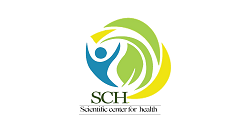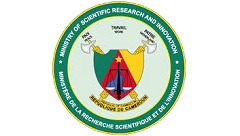Abstract submission
International Applicants: October 15, 2020
Domestic applicants: October 31, 2020
Selected applicants will be notified by November 8, 2020
General Guidelines
Abstracts should contain the following four components:
– Background: a concise statement of the issue under investigation or a hypothesis;
– Materials & Methods: the experimental methods used (including the statistical analyses employed);
– Results: specific findings (promises such as “to be completed” or “to be presented” are not acceptable, including statistical analyses;
– Conclusions: a summary of findings that are supported by your results; concluding statements such as “the results will be discussed” are not acceptable.
Please note that abstracts cannot be accepted if tables, graphs, grant acknowledgements or literature references are included. The maximum word count for the abstract body is 300 words. Abstract Title is a maximum of 100 characters (20 words).
Abstracts are considered as official communications to the Fair and will be treated confidentially. For those abstracts that are accepted, submitters agree to attend the Fair and present their abstracts as scheduled.
Abstract submission
Authors can submit their abstracts electronically using the button “Submit Abstract”. You will be redirected to the submission website. Please follow the step-by-step directions, which will enable you to upload the abstract. To ensure your abstract retains any special characters or formatting, the abstract must be in Microsoft Word format.
If you have any questions regarding your abstract submission, please contact the abstract support team at abstract@ifyar.com
Categories for abstract submission
For purposes of review and programming, abstracts are divided into topical categories and subthemes. Selection of the most appropriate category is important as it determines who reviews your abstract. The Scientific Committee of the fair reserves the right to reassign your abstract to a more appropriate category or subtheme.
Abstract topics and subthemes
- Health sciences
- Communicable diseases
- Non-communicable chronic diseases
- Medical devices/innovations and pharmaceuticals
- Quality control, medical norms and standards (GCLP)
- Operational and implementation research
- Food and nutrition sciences
- Food Science, health and Nutrition Security
- Post-harvest technology, processing and food toxicology
- Probiotics, Alicaments and Functional Foods
- Global Warming & Agriculture
- Livestock Production Agro-technology and Agro-engineering Systems,
- Food insecurity, environmental threats and Innovative ways of Feeding
- Health law and Right to health
- The challenges of industrialization and commercialization of byproducts of African traditional pharmacopeia
- Bio piracy, patent, conservation and commercialization of the Know-how derived from African traditional pharmacopeia
- Setting up of an African system of solidarity aiming a Universal Health-care coverage.
- The challenge of a legal framework and institutionalization of the African traditional pharmacopoeia and medicine
- The challenge of the backing and guidance of the young African researcher in the promotion of the population’s right to health
- The challenges in funding Health-oriented research in Africa/Cameroon.
- Social sciences
- Social Sciences as vector of development
- Organizational and public image
- Behavioral change with respect to risks
- Importance of the digital area in the research process
- Crises management
- Material Sciences, Energies and ITC
- Renewable energies and fossil fuel: impact on the African countries development
- Next-generation biofuels
- Materials for the future
- Nanomaterial’s and development
- Artificial Intelligence and cyber criminality
In addition to the abstract category, please indicate 3-5 keywords (free text, maximum 25 characters per keyword) in bold at the bottom of your abstract. The key words must be representative to the content of the abstract.
Notification of abstract acceptance and presentation format
Notification of acceptance or rejection will be sent to the submitting (corresponding) author from 1st July – 15th July 2020. Please note that only the corresponding author will receive email concerning the abstract and is responsible for informing all co-authors. Please notify the Fair Secretariat if you have not received notification. If your abstract is accepted, one author is required to register for the Fair and present the paper as scheduled. Guidelines for preparing your oral and/or poster presentations will be sent after your abstract has been accepted.
Abstract publication
Accepted abstracts will be published in the Abstract Book. All abstracts will be published in the journal Reviews in IFYAR’s Journal. Please note that the Fair secretariat cannot be held responsible for any typing or language errors in the submitted abstracts.






